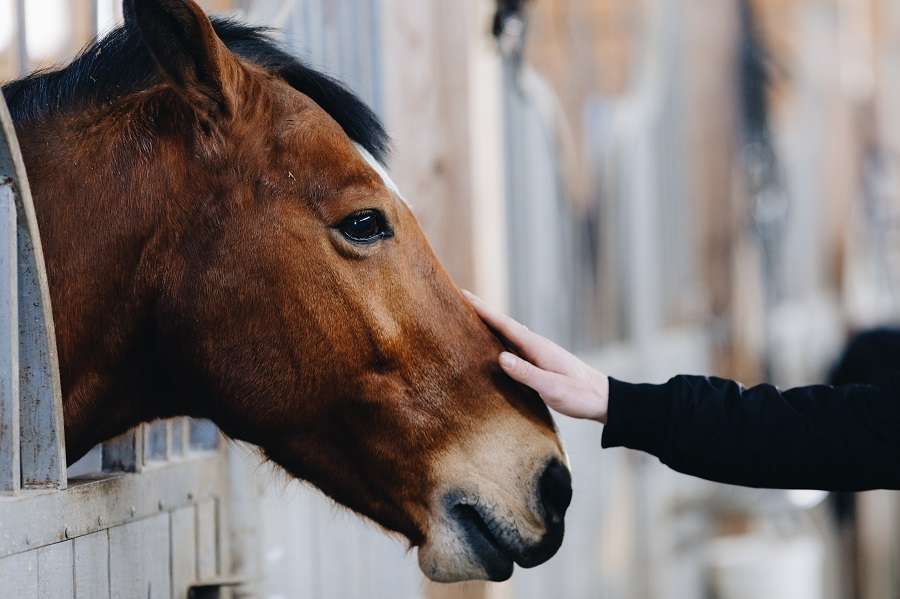
When jockey Manuel Franco edged closer to the elusive finish line on 20th June 2020, it became apparent that his horse, Tiz the Law would win the 152nd Belmont Stakes.
The three-year-old colt was cheered on by a small group of trainers, grooms and press members to mark a unique fanless event that took place in the midst of a global pandemic. Not even horse owners were allowed to the event to watch their horses perform. In addition to having no spectators for the race, the total prize winnings for the Belmont Stakes had been slashed to $1 million, down from $1.5 million the previous year.
New Reality for Horses in Covid Era
It all started thousands of miles away at a little known province in China called Hubei. By December 2019, a cluster of people in the province had suffered pneumonia. Further investigation led to the identification of a novel or new coronavirus that was named COVID-19. This highly infectious virus prompted the World Health Organisation (WHO) to declare it a global pandemic on 11th March, 2020. The virus has proven a hard nut to crack and from early 2020, many countries started to lockdown and shut down sectors of their economies in a bid to reduce the spread; to bend the virus curve. People were advised to observe social distance, observe personal hygiene and even stay at home. Learning institutions and other non essential sectors were closed and preventive measures were implemented by governments.

The horse industry has not been spared by this pandemic. Multiple horse shows, tournaments, exhibitions and training were cancelled in line with government directives. Even the Summer Olympic Games were also pushed to 2021. The United States Equestrian Federation (USEF) in a bid to follow recommendations against COVID-19 canceled and postponed many equine events. These events included camps, training, clinics and selection trials. Even local horse shows by non affiliated horse event organisers have been affected. The Belmont Stakes were actually postponed and held on 20th June, instead of 6th June, 2020. Organised by the New York Racing Association (NYRA), the Belmont Stakes not only had to be pushed; but the racing distance had to be shortened as well.
Major Changes in Event Schedules and Handling
The Belmont is part of the American Triple Crown which normally begins with the Kentucky Derby on the first Saturday of May. It is then followed by the Preakness Stakes two weeks later. The Belmont Stakes then crowns the event in early June. These major racing tournaments are preceded by prep races up to six week before the Triple Crown. In the wake of the pandemic, a new normal has been registered. The Belmont for example was held first; which warranted for a shortening of the race from 2.4 km to 1.8 km. The 2020 Kentucky Derby is scheduled for the first Saturday in September; this is according to Churchill Downs officials. Information from Pimlico has also indicated that the 2020 Preakness Stakes are scheduled for the first Saturday in October.
On the ground, things could not be worse. Many equine rescue organizations in the United States have had to close down operations or scale down. Quality horse care and welfare has simply become an illusion for many. Would-be donors and volunteers are also shying away from committing monies when their financial future could be in jeopardy. With cancelled events and training, incomes have dwindled; in fact, many equine care organizations now have no income whatsoever.
In Canada, Equestrian Canada (EC) together with the provincial and territorial sport organizations (PTSOs) recommended the closure of all facilities that host equestrian activities. These facilities included lesson barns, boarding stables; among others. The restrictions in movement have affected horse groomers and caregivers. With no camps, clinics or conferences, incomes have suffered as COVID-19 ushers in a new world order. Major jumping tournaments such as the Masters among others were cancelled by Spruce Meadows in Calgary. Top races like The Queen’s Plate were also postponed. For the first time in 100 years, the Calgary Stampede was cancelled.
The ripple effect has been massive layoffs in the horse industry. Athletes or riders have been rendered jobless with businesses maintaining essential staff members only who they can afford. Seasonal staff have also suffered with the dimming opportunities for work in this sector. Another problem that has arisen has to do with insurance. A rider who injures themselves and needs medical attention during the pandemic may not automatically qualify for cover. This is because many government directives have advised people to reduce risky activity during the pandemic. Risk assessment by insurance companies is therefore another source of worry for people in the horse industry. Coverage and claims could be affected for barns that defy government recommendations and stay open.
How some equine businesses are staying afloat
Looking after horses while maintaining high standards of care is not cheap. Horses need to eat with feeding expenses like hay and grain. Other expenses are farrier work, sawdust, feeding work, water stable care and blanketing. A barn hosting 55 horses for example may average up to $25,000 every month for basic expenses. These high overheads have led some barn owners to look into alternative incomes to stay afloat. One such method is a program where you can adopt a horse through packaged contributions online. Horse lovers can get all the updates on their adopted ponies or horses. Other income earners are virtual riding lessons; among others.

Many fundraising initiatives have been launched to help the horse industry withstand the COVID-19 shocks. Governments have also explored creating special funds to cushion equine businesses that are vulnerable. Equine professionals such as vets and farriers have also developed special protocols to observe safety while caring for the animals. Equine suppliers such as tack stores have enabled more digital business to avoid in-person interactions. Horse trainers are also producing video content for online consumption. In addition, some horse sales have gone online as well. However, with all the online enthusiasm, stakeholders are concerned about the longevity of the pandemic. If the situation does not open up for business, the impact could be catastrophic and ultimately, horses will suffer.
What is the way forward for the horse industry?
No one really knows the actual impact of COVID-19 over the next few months or years. However, experts in different industries are rising to the occasion to give a raft or recommendations that might hopefully help in the long run. The equine industry has received interesting recommendations from many sources. In a Hartpury University study, equine experts engaged the horse sector in bid to understand the problems. The experts drafted some mitigating measures that might help governments or administrations manage better in the wake of the pandemic.
Professors, equine consultants, veterinary surgeons and equine nutrition specialists under Hartpury University carried out this study and uncovered interesting points. The study found that one-third of horse owners were worried about the financial impact facilitated by the pandemic. This economic strain will affect not just horse welfare and management, but the mental status of the horse owners. Keep in mind that having a horse creates the same bond as having a pet dog or cat. In addition, horses are therapeutic animals that contribute greatly to the mental welfare of their owners.
Helping the Equestrian Industry Bounce Back
The study and the recommendations therein are tailored to help the equine industry understand the impact brought by COVID-19 and how best to adapt to the new normal. The study report contains practical advice to all the stakeholders including horse owners, yard managers, horse professionals and bodies like farriers, vets and welfare officers. This study was in the form of a survey containing 16 questions in multiple choice answers with two questions left for free-form answers. The survey brought together 6,000 eye-opening responses.
Among the recommendations include more guidance by governments regarding the access to financial support where businesses have been affected negatively. The study also advises support for equine charities to create the right capacity that will eventually translate to better horse welfare by owners. To mitigate mental wellness by owners or people who have been affected by the access restriction to horses, the study advises on creation of support systems or networks to foster positive coping mechanisms moving forward.

Horses Coping with Covid
This survey will be repeated later in the year to assess the progression of the crisis on the ground. Hartpury is a leading equine educational institution in the world. The research findings are incorporated into teaching while affecting industry trends and curriculum for best practices.
The COVID-19 pandemic is a fluid situation that could head any direction. Uncertainty on when things will fully open up is a source of great heartache for many players in the horse sector. Many governments are working on strategies, guidelines and protocols of how to start reopening various sectors of economies. With many grey areas, what is clear is that the pandemic has changed how we do things for good. Medical and economics experts have stated that it is impossible for things to go back to how they were before. Embracing new norms could therefore be the best way forward to cope with the pandemic. Even with the equine sector affected gravely, all people are reminded that safety has to come first. Evading the deadly virus and protecting others is the sure way to get a good fighting chance to salvage other components of our lives.

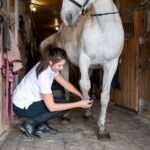

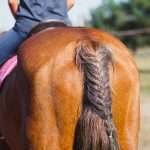
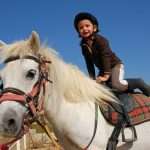
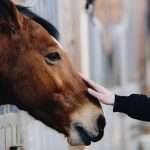
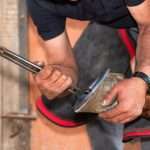

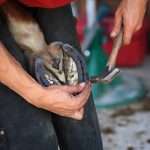
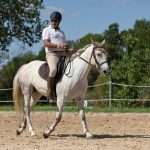
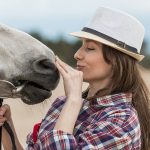
It’s interesting to learn that a lot of horse shows have been cancelled this year due to the virus so people and the animals stay safe. My brother just bought a big piece of land so he wants to get some horses this fall. I think it’s a great idea for him to buy some abused horses so that he can give them a better life. americanequineawareness .org